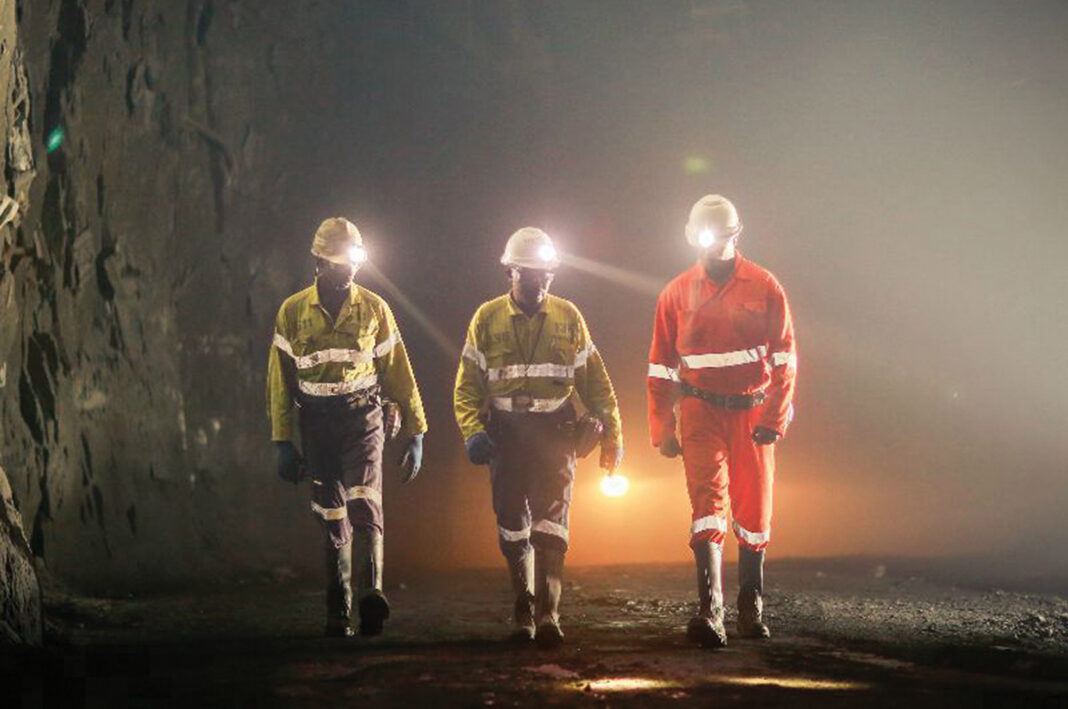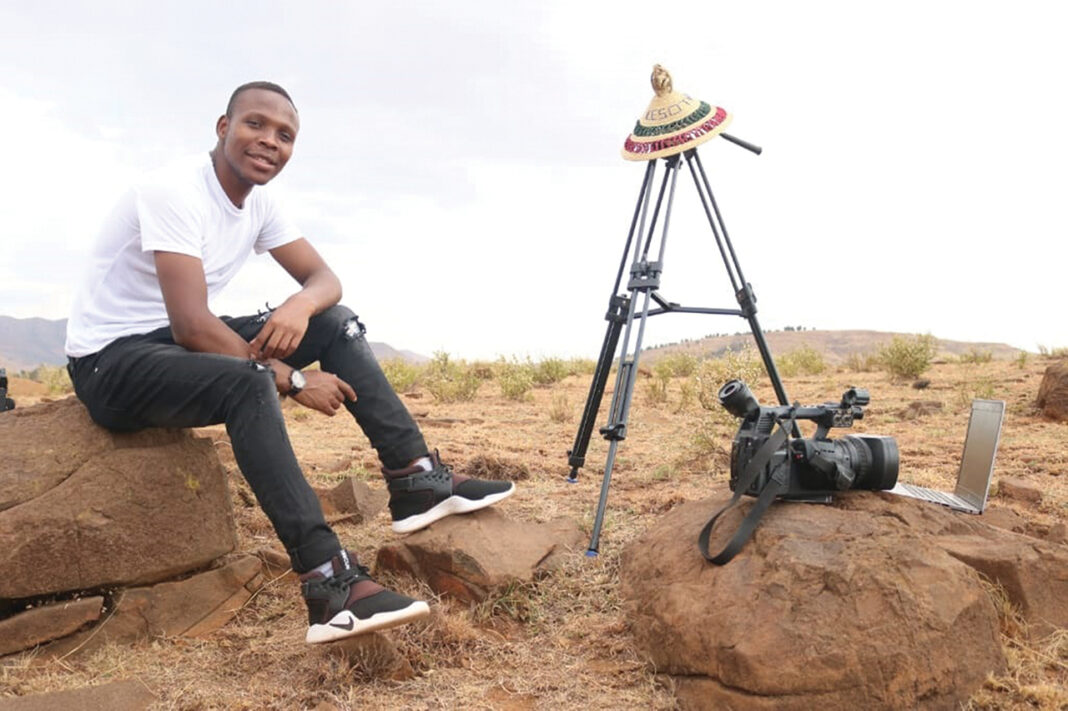By ‘Majirata Latela
With the process of ex-miners to claim monies for lung related diseases former mineworkers being very slow and painful, many ex-miners are confirmed to be living in abject poverty despite working for decades in South African mines.
According to mine recruitment agency TEBA, the numbers of men working in the South African mines has declined significantly from a peak of about 125,000 Basotho men working in South African mines in the late 1980s to 35, 000 in 2010.
The decline still continues as mines continue to retrench more and more men who are the breadwinners of their families, without the skills to use their retrenchment packages and skills in life after the mines, most of these men are struggling to put bread on the table.
With Lesotho’s high unemployment rate, Basotho men have been migrating to neighbouring South Africa to work in the country’s gold and platinum mines for generations. In the 1990s, the money they sent back to their families accounted for as much as 67 percent of Lesotho’s GDP, according to the World Bank.
The situation is different now; climate change has affected Lesotho’s agricultural sector very negatively adding to the number of people living under extreme poverty to 60.7 percent.
In its draft of Lesotho’s Country Strategic Plan, World Food Programme (WFP) shows that poor households have little resilience against economic shocks and lack of saving or access to credit, trapping them in a cycle of low investment, low productivity and low income.
“Lesotho’s poverty profile has not changed over the past decade. An estimated 57 percent of the population lives below the poverty line and 30 percent lives below the food poverty line, with food expenditure being insufficient to meet the minimum food requirements,” the report reads.
The report continues to explain that the spatial distribution of food poverty is biased towards the rural areas, where more than 60 percent of the population lives below the poverty line.
theReporter took a trip to the district of Mokhotlong – 300km from the capital Maseru – to meet a couple living in a small town Mapholaneng, whose life has totally changed following the husband’s retirement from the mines after contracting Tuberculosis and sustaining injuries from working in the mine shafts.
Born and bred in the Malingoaneng constituency in the village of Tlooa-re-bue, Sesemane Ramotloenya is now struggling to make ends meet as he depleted the retrenchment package he got from the mines in less than six months. The package was over M21,000. That was in 2008.
Since then, he has been living in hopeless poverty with his wife and 23-year old daughter. Having worked in the mines his entire life, he does not possess any skills other than ploughing the fields and looking after livestock.
“After returning from the mines which in 2008 due to ill health, my life deteriorated even more. I suffered from TB and then later diagnosed with HIV. I spent two years after that trying to recover, and a huge chunk of my retrenchment package was spent on medical expenses.
“As if that was not enough, my wife also fell sick and that meant more money got channelled to our medical expenses while at the same time raising our two daughters who did not even get a chance to go to college after completing high school due to poverty,” Ramotloenya said.
Meanwhile, the circle of poverty now seems to be running in the family following the retrenchment of all his three brothers. His father, Leseli Ramotloenya (77), is himself a former mineworker who was retrenched in 2000 after working for 27 years.
Ramotloenya Senior is still sick and was also diagnosed with depression. He is now drifting towards mental illness which means he won’t be able to fight for his monies without the help of his wife and children. To become eligible to receive compensation, a person will have to go through screening which is done only at Sankatana Hospital in Maseru. One hitch though, the Sankatana offices are currently closed due to a hand over that has to be done to the ministry of health by Global Fund which has running the offices.
“The problem with us taking our father there is that Maseru is too far and due to ill health, he will need private transport to take him there. Even though he earns pension money from the ministry of social development, going to Maseru and coming back is going to be very costly. We so wish there was another branch for screening here in Mokhotlong.
“We need this compensation money desperately because it will help us take care of these ex-miner family member who currently need proper care. We need the money to buy essential needs and pay for essential services so that we can keep our lives in order.
“The problem is the information about our compensation money we usually get from our chiefs about the money is not enough because they sometimes give us information which they also do not understand and that usually discourages many people to keep doing what they are requested to do to get the money. Also, we have people who have taken advantage of our illiteracy and promise to help us get the money and demand some kind of payment for the services,” said Ramotlonya’s wife ‘Mabokang.
She added that since her husband and father-in-law came back from the mines, life has been very tough as they were used to getting money on a monthly basis but now there is no source of income other than the social grants.
Even though the retrenchment money made a difference in many people’s lives, about 10 percent of the people that worked in the mines and their families would never go back to the mines as they fear that they will die due to the hazardous work done underground.
Mokhotlong ex-miners say they are currently looking for jobs in Lesotho’s diamond mines, and Polihali Dam construction seems to be their last hope of getting jobs that will sustain their families while awaiting the slow processes of some getting retrenchment packages and this compensation for TB and silicosis.
Ex-miners Association’s coordinator Rantso Mantsi, says the newly established Tshiamiso Trust will soon start compensation of those miners who have been confirmed to have contacted Tuberculosis and Silicosis while working in the gold mines.
The Trust was established to carry out the terms of the settlement agreement reached between six mining companies and claimant attorneys in the historic silicosis and TB class action.
It is responsible for ensuring that all eligible current and former mineworkers across southern Africa with silicosis or work-related TB (or their dependants where the mineworker has passed away) are compensated.
He however said, there are a few issues they raised this Monday with other associations from South Africa, eSwatini, Mozambique and Botswana to the trust fund that need to be ironed out and, when everything is all done, claimants will be in a position to get their money. He said all they want is transparency and until all is clear they will wait because the want people to get the money that is due to them.
He said the obstacle with working with these ex-miners is that most of them are illiterate and many have lost their sense of hearing from working with those loud machines, which poses a problem because they are now rely on their families for information.
“We have however realised that the other challenge that needs to be addressed is that the ex-miners and their families need financial literacy to make sure that when they receive the money they can be able to set up sustainable projects.
“We have already partnered with the Institute of Development Management which will provide ex-miners with the needed skills and financial literacy. We have also arranged with one of the banks to finance the trainings in return for those miners also investing some of their money in that bank,” he said.
On 10 July, the Justice for Miners Campaign (J4M), which was formed to advocate for miners and ex-miners that have contracted either or both silicosis and tuberculosis while working in South Africa’s gold mines, published a statement of concern about the current state of operation of the Tshiamiso Trust. The trust was formed following a R5-billion settlement in 2018 class action lawsuit. J4M believes that up to 500,000 ex-miners may qualify for compensation administered by the trust.
J4M contends that the trust is moving too slowly in its formation and operations. To date, no ex-miner party to the settlement has received any compensation from the trust. J4M says the suspension of the lung function tests due to Covid-19-a measure that is required for an ex-miner to qualify for compensation- will cause “huge delays” in the compensation process.
In response, the Tshiamiso Trust has defended its progress, saying that while the settlement was made public two years ago, the terms were only reached in late 2019, and that Covid-19 has hampered its ability to discharge its duties. The task of administering the trust requires setting up complex systems, which cannot be rushed.
The trust says the pilot phase of the compensation process began in late June 2020, and focuses on ex-miners with second stage silicosis. These miners have existing medical records confirming their lung impairment.









